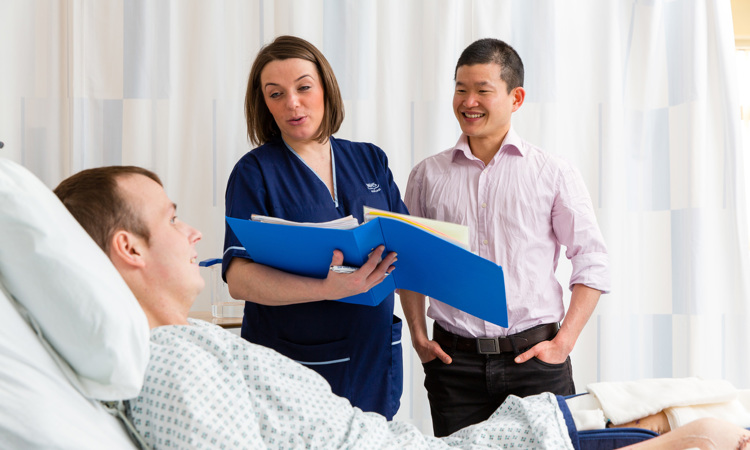Working in medicine for NHSScotland
Doctors worldwide come to the UK each year to train and work in NHSScotland. International medical graduate doctors are a vital part of our workforce. They bring diverse skills and clinical experiences, strengthening our ability to deliver high-quality care.
Thrive in your NHS career
NHSScotland offers a warm welcome, a comprehensive induction, and ongoing support. We'll help you thrive in your NHS career and within the wider community, wherever you choose to live and work in Scotland.
Medical roles
Working in a medical role within the NHS in Scotland can open up many opportunities for career progression and personal development.
Explore career options for international medical graduates
Depending on your career stage, there are different options to explore. You can search for vacancies with one of our 22 health boards and learn about our recruitment process. You can also find out about applying for specialty training in Scotland. If you want to gain experience in the NHS before applying for training, you could consider a clinical fellowship.
Explore the options below that match your career aspirations to learn more about the different routes into the NHS.
Navigate page

We are recruiting
Visit our recruitment website to find your perfect career in NHSSScotland.
View vacancies
Working in Scotland
Find out everything you need to know about working in Scotland.
Working in Scotland